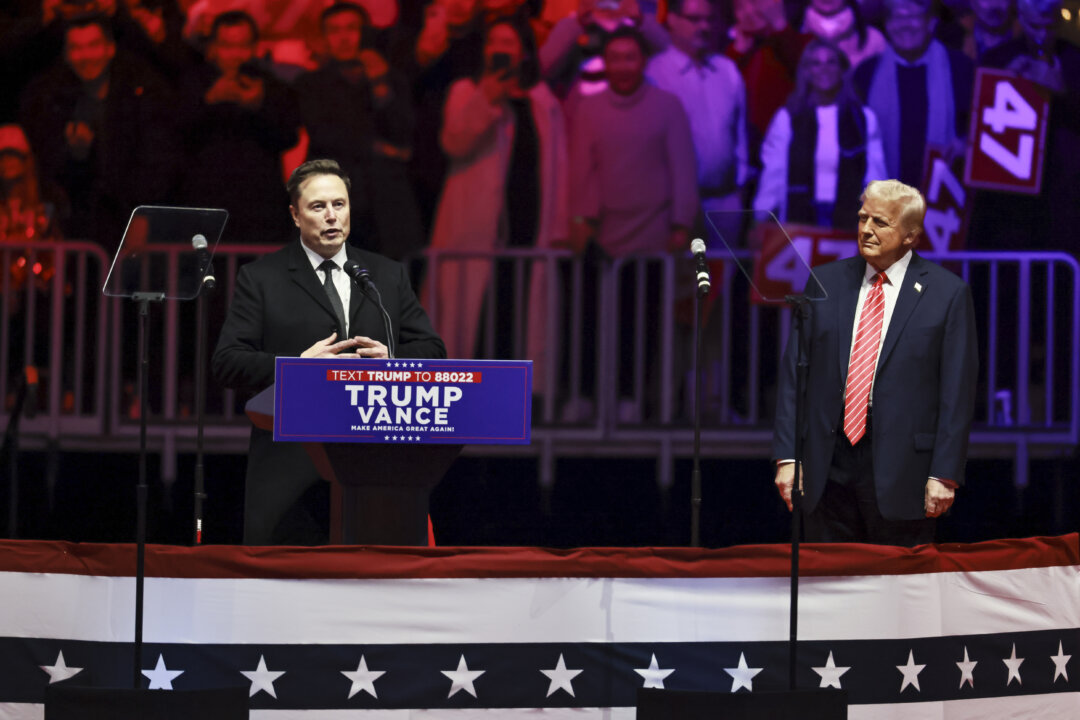The Department of Government Efficiency says 104 DEI contracts has been scrapped across 25 federal agencies, saving taxpayers over $1 billion.
Department of Government Efficiency (DOGE) has announced that the department has already canceled 104 contracts related to diversity, equity, and inclusion (DEI) across a bevy of federal agencies, saving taxpayers over $1 billion.
Headed by Elon Musk, the nongovernmental advisory commission provided the DOGE operational update in a Jan. 31 post on X, which features a list of 25 federal agencies along with a corresponding number of DEI-related contracts that have been canceled.
The Department of the Treasury led with 21 canceled contracts, saving $25,247,783, followed by the Department of Health & Human Services, which canceled 15 contracts worth $28,187,448. Notably, the Office of Personnel Management canceled three contracts totaling $494,956,233, averaging about $165 million per contract. In total, the canceled contracts have saved taxpayers $1,000,060,792, according to DOGE.
Trump officially established DOGE with a Jan. 20 executive order, renaming the United States Digital Service, an agency formed under President Barack Obama, to the United States DOGE Service. Initially, Trump tapped biotech entrepreneur Vivek Ramaswamy to lead DOGE alongside Musk, but that changed when Trump’s team announced that Ramaswamy would no longer be part of the initiative.
In a recent interview, Musk said that he hopes that DOGE can cut up to $2 trillion in federal spending, with his latest Jan. 31 operational update for DOGE indicating that this effort is beginning to bear fruit.
DOGE’s update targeting DEI aligns with President Donald Trump’s Jan. 20 executive order that aimed at dismantling DEI programs within federal agencies. The order mandates the immediate closure of DEI and DEIA (diversity, equity, inclusion, and accessibility) programs, saying they are “illegal and immoral” and that they’ve led to “immense public waste” and “shameful discrimination.”
“That ends today,” Trump wrote in the order. “Americans deserve a government committed to serving every person with equal dignity and respect, and to expending precious taxpayer resources only on making America great.”
Later, in line with Trump’s order, the Office of Personnel Management began directing all agencies to take immediate action to roll back DEI, including canceling any related training and firing DEI staff.
Detractors of DEI say that such programs are discriminatory and undermine meritocracy, while supporters say such policies enhance diversity and strengthen organizational culture.
Meanwhile, prior to Ramaswamy’s exit from DOGE, he and Musk co-authored an article in November 2024 in the Wall Street Journal laying out early plans for DOGE.
“The entrenched and ever-growing bureaucracy represents an existential threat to our republic, and politicians have abetted it for too long,” Musk and Ramaswamy wrote. “Unlike government commissions or advisory committees, we won’t just write reports or cut ribbons. We’ll cut costs.”
Trump’s executive order also mandates that each federal agency establish a DOGE team, consisting of at least four employees. These teams will collaborate with DOGE to implement the administration’s agenda, focusing on modernizing federal technology to maximize efficiency.
Aside from the Trump administration’s actions on DEI, a number of major U.S. corporations have rolled back DEI initiatives, including Caterpillar, McDonald’s, Southwest Airlines, Toyota, and Walmart.
Public sentiments against DEI policies have grown in recent years, with the U.S. Supreme Court’s decision in July 2023 to strike down affirmative action admissions programs at colleges giving further support to efforts opposing DEI.
There has also been some pushback against the anti-DEI movement from Democratic lawmakers and advocacy groups.
The Human Rights Campaign has criticized the corporate DEI retreat, warning of negative consequences, both in terms of business success and the ability to attract “diverse workforces.”

